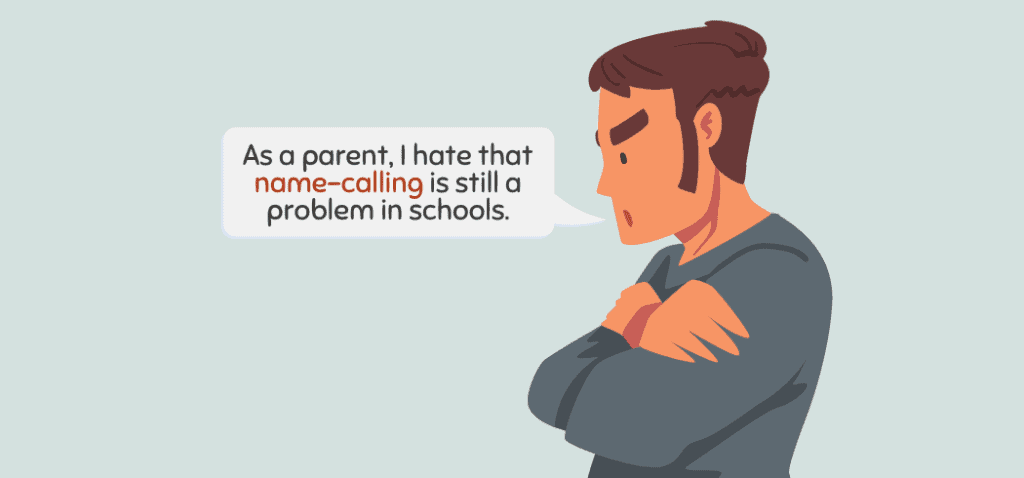English, like any language, can be a powerful tool to express your ideas and emotions. But, in the same vein, it can become a tool for insults. We even have terms to describe such things, like the word name-calling, for example. So, let’s take a look at the real meaning of the term “name-calling,” determine if you should hyphenate it, and see how to use it in a sentence.
Name-Calling Definition Explained

When you’re doing blatant name-calling, it means you’re using derogatory or offensive words to describe others. It’s meant to belittle and attack someone and is never viewed as a positive thing.
It’s a powerful tool used by bullies or people who want to assert dominance over others. It can come in so many forms, and we actually see it every day. Examples are racial slurs, attacks on people’s appearance or intellect, and insults about their ability to do something.
Is Name-Calling Meant to Be Hyphenated?
According to just about every single official dictionary source, you should hyphenate the term “name-calling” because it’s a compound word. It shouldn’t be a single word, “namecalling,” or two separate words—”name calling.”
However, you can use the two-word version in more relaxed and informal settings and probably get away with it. But if you’re writing professional emails, a report, essays, etc., use the more grammatically correct version, which is “name-calling” or “name-call.”
Origin/Etymology of Name Calling
The term came about in the late 1500s and didn’t gain widespread popularity until sometime in the 1800s. But it was referred to as the use of opprobrious epithets, which pretty much means calling someone offensive names.
Synonyms for Name-Calling
Try any of these other words in place of “name-calling” and still convey the same message or intent.
- Insults
- Taunts
- Derogation
- Put-downs
- Disparagement
- Mockery
- Slander
Name Calling Examples in a Sentence

As usual, I like to end things off with a few complete sentences using the word or phrase to show you some deeper context.
- My kid’s teacher intervened when she noticed that most of the students were engaging in name-calling during recess.
- Name-calling and brutal accusations are not going to win this election.
- As a parent, I hate that name-calling is still a problem in schools.
- I always see politicians resorting to immature name-calling when they want to discredit their opponents.
- Name-calling has no place in a civil and respectful conversation between adults.
- The wave of hurtful name-calling online left Sam feeling worthless and scared.
- I keep my kids off Facebook and Instagram because online forums and social media can be breeding grounds for name-calling and toxic behavior.
- Growing up, I was a victim of daily name-calling for my massive, frizzy curls because I’d yet to learn how to style them.
Don’t Resort to Straightforward Name-Calling
There’s no positive way to spin name-calling. It comes with a negative connotation, and when you say the word, most people automatically assume you or someone else are using derogatory terms toward somebody.
Enjoyed reading about this idiom? Check out some others we covered:
